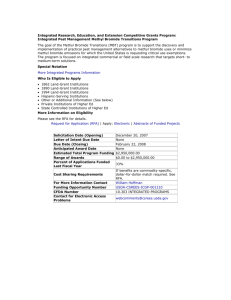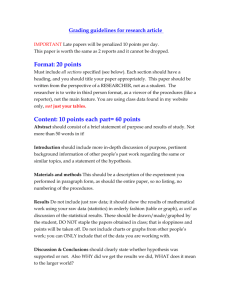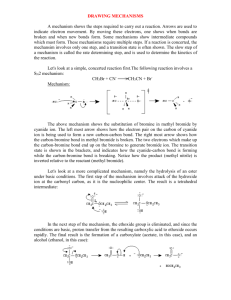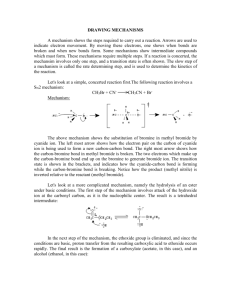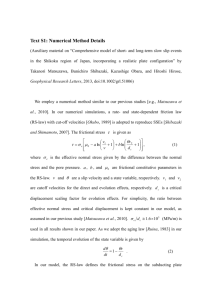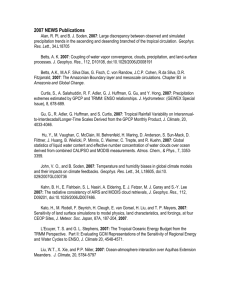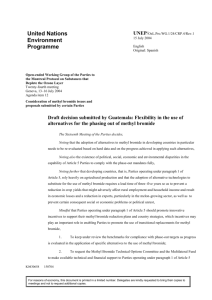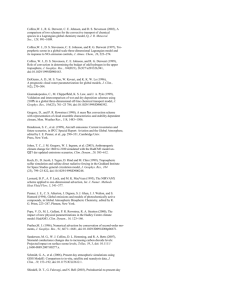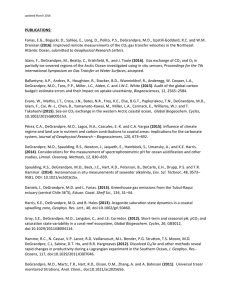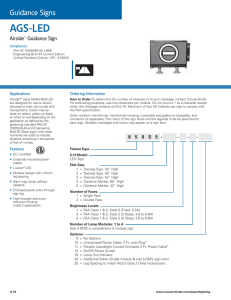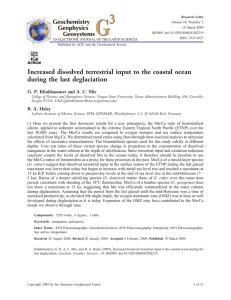Daniel King
advertisement
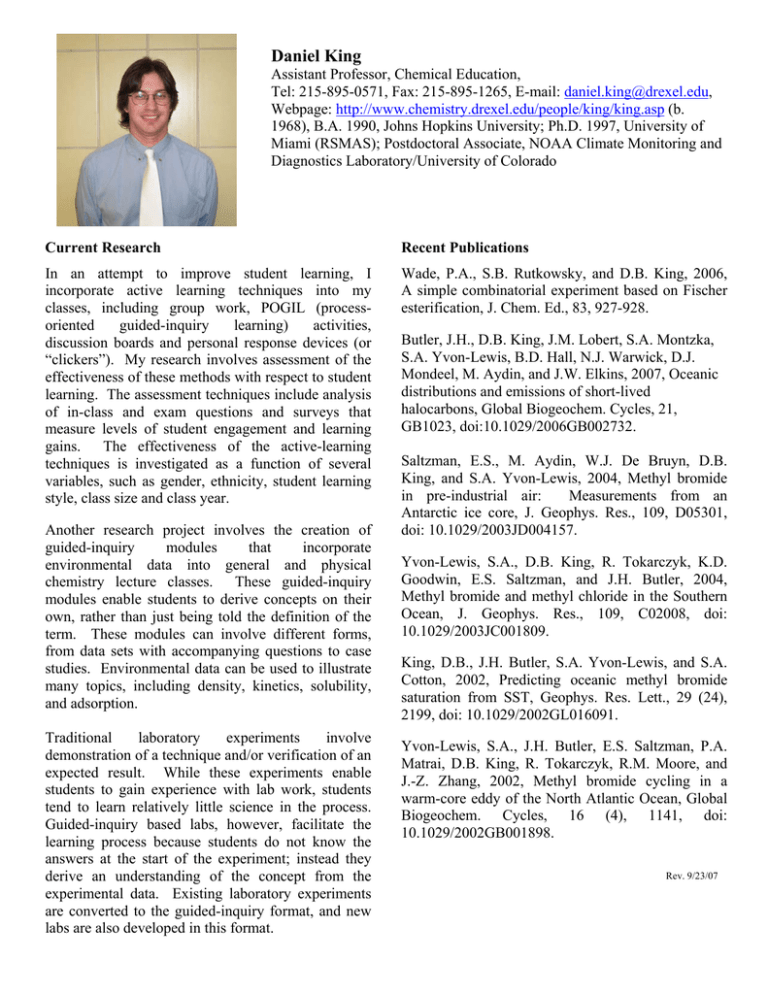
Daniel King Assistant Professor, Chemical Education, Tel: 215-895-0571, Fax: 215-895-1265, E-mail: daniel.king@drexel.edu, Webpage: http://www.chemistry.drexel.edu/people/king/king.asp (b. 1968), B.A. 1990, Johns Hopkins University; Ph.D. 1997, University of Miami (RSMAS); Postdoctoral Associate, NOAA Climate Monitoring and Diagnostics Laboratory/University of Colorado Current Research Recent Publications In an attempt to improve student learning, I incorporate active learning techniques into my classes, including group work, POGIL (processoriented guided-inquiry learning) activities, discussion boards and personal response devices (or “clickers”). My research involves assessment of the effectiveness of these methods with respect to student learning. The assessment techniques include analysis of in-class and exam questions and surveys that measure levels of student engagement and learning gains. The effectiveness of the active-learning techniques is investigated as a function of several variables, such as gender, ethnicity, student learning style, class size and class year. Wade, P.A., S.B. Rutkowsky, and D.B. King, 2006, A simple combinatorial experiment based on Fischer esterification, J. Chem. Ed., 83, 927-928. Another research project involves the creation of guided-inquiry modules that incorporate environmental data into general and physical chemistry lecture classes. These guided-inquiry modules enable students to derive concepts on their own, rather than just being told the definition of the term. These modules can involve different forms, from data sets with accompanying questions to case studies. Environmental data can be used to illustrate many topics, including density, kinetics, solubility, and adsorption. Traditional laboratory experiments involve demonstration of a technique and/or verification of an expected result. While these experiments enable students to gain experience with lab work, students tend to learn relatively little science in the process. Guided-inquiry based labs, however, facilitate the learning process because students do not know the answers at the start of the experiment; instead they derive an understanding of the concept from the experimental data. Existing laboratory experiments are converted to the guided-inquiry format, and new labs are also developed in this format. Butler, J.H., D.B. King, J.M. Lobert, S.A. Montzka, S.A. Yvon-Lewis, B.D. Hall, N.J. Warwick, D.J. Mondeel, M. Aydin, and J.W. Elkins, 2007, Oceanic distributions and emissions of short-lived halocarbons, Global Biogeochem. Cycles, 21, GB1023, doi:10.1029/2006GB002732. Saltzman, E.S., M. Aydin, W.J. De Bruyn, D.B. King, and S.A. Yvon-Lewis, 2004, Methyl bromide in pre-industrial air: Measurements from an Antarctic ice core, J. Geophys. Res., 109, D05301, doi: 10.1029/2003JD004157. Yvon-Lewis, S.A., D.B. King, R. Tokarczyk, K.D. Goodwin, E.S. Saltzman, and J.H. Butler, 2004, Methyl bromide and methyl chloride in the Southern Ocean, J. Geophys. Res., 109, C02008, doi: 10.1029/2003JC001809. King, D.B., J.H. Butler, S.A. Yvon-Lewis, and S.A. Cotton, 2002, Predicting oceanic methyl bromide saturation from SST, Geophys. Res. Lett., 29 (24), 2199, doi: 10.1029/2002GL016091. Yvon-Lewis, S.A., J.H. Butler, E.S. Saltzman, P.A. Matrai, D.B. King, R. Tokarczyk, R.M. Moore, and J.-Z. Zhang, 2002, Methyl bromide cycling in a warm-core eddy of the North Atlantic Ocean, Global Biogeochem. Cycles, 16 (4), 1141, doi: 10.1029/2002GB001898. Rev. 9/23/07
